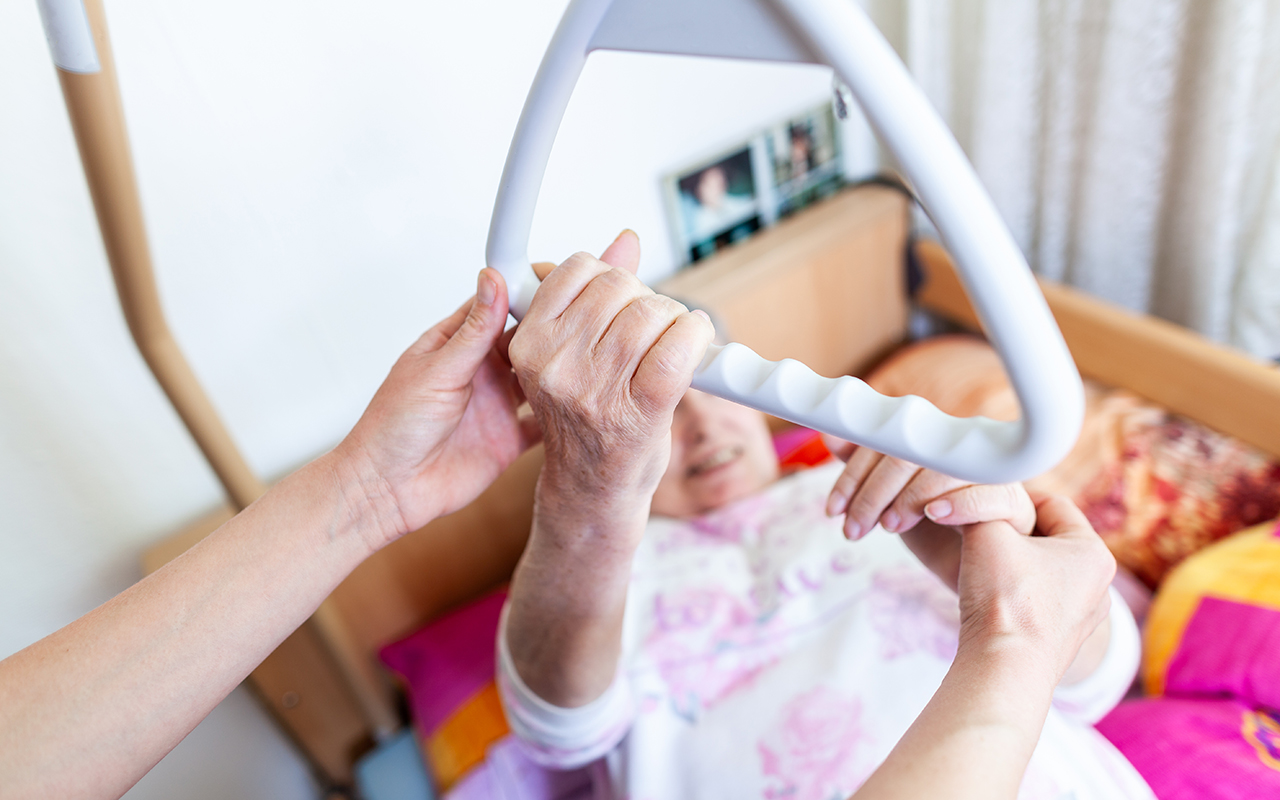Share
As your loved one progresses to mid- or late-stage Alzheimer’s, he or she needs appropriate activities to stimulate the mind and minimize restlessness, wandering and unsettled emotions.
Here are five ways to keep your loved one engaged.
1. Get Artistic
Creative activities provide an outlet for self-expression if your loved one is no longer able to clearly convey thoughts or emotions in other ways. Go to a local arts and crafts store to find simple supplies for:
• Drawing
• Painting
• Coloring
• Sewing
• Needlepoint
• Knitting or crocheting
If your loved one has trouble following patterns or coloring complex designs, simply allow him or her to explore and experiment freestyle.
2. Have a Home “Salon Day”
Gentle physical interaction, such as hair brushing and hand massage, can be comforting in the late stages of Alzheimer’s. To replicate a true “spa” atmosphere, turn on some relaxing music, and diffuse soothing essential oils.
3. Plan a Movie Night
Between libraries, streaming services and on-demand cable, you can find just about any movie your loved one enjoys. Gather a few titles he or she would like to revisit, and have fun watching them together.
Make movie night even more fun with some cozy blankets and tasty snacks!
4. Read Aloud
Reading books and magazines out loud is an appropriate activity for every stage of Alzheimer’s.
As with movies, select reading material based on your loved one’s interests and preferences, but avoid hard-to-follow storylines with the potential to upset or agitate him or her. Audio books are another option for the times when you’re not available to read.
If words are sometimes too overwhelming, try sharing books with large, colorful pictures or photographs instead.
5. Assign Simple Housework
Independence declines as Alzheimer’s progresses, but it doesn’t lose its importance.
Involve your loved one in daily tasks as much as possible to help him or her maintain a sense of worth and usefulness. Basic chores like folding laundry or sweeping are straightforward enough for those with mid- to late-stage Alzheimer’s.
Consider your loved one’s current level of ability when choosing activities, and plan to keep sessions short and manageable. If he or she becomes frustrated, take a break or move on to something else. Continue to work periods of stimulating activity into the daily schedule to keep help your loved one retain a sense of independence.
While your loved one will often be able to take care of basic tasks even with mid to late stage Alzheimer’s, assistance with medication, preparing meals, and more will be necessary. Depending on your schedule this may be challenging to accommodate, and you may find yourself needing help or respite. The certified caregivers at Caring Home Care are here to support you.
Contact Caring Home Care today to learn more about our in-home caregiving services provided by registered Home Health Aides and Certified Nursing Assistants.
How Caregivers Can Reduce Injury While Assisting Seniors Providing daily care for seniors is meaningful work. It can also be physically demanding. Many caregiver injuries happen during lifting, transferring, or repositioning seniors. These injuries are often preventable when proper techniques are used. Learning caregiver injury prevention strategies protects both the caregiver and the senior. It
Build a Caregiver Support Network: Finding the Help and Encouragement You NeedCaring for a loved one is one of the most meaningful and selfless things you can do. But being a family caregiver can also be emotionally, physically, and mentally draining. Whether you’re new to caregiving or have been doing it for years, building a
The Role of Respite Care: Supporting Caregivers and Seniors Caring for an aging loved one is an act of love, patience, and dedication. However, even the most committed caregivers need time to rest, recharge, and take care of their own needs. This is where respite care for caregivers plays a vital role. By offering temporary
Emotional Challenges of Caregiving Understanding and Coping with the Emotional Toll of Being a Caregiver Caregiving is one of the most rewarding roles a person can take on. It allows individuals to provide meaningful support to a loved one in need. However, it also comes with significant emotional challenges. Whether you’re caring for an elderly
Need A Caregiver? Fill Out Form Below
With our competitive rates, we make receiving in-home care affordable regardless of whether you’re using your insurance or paying out of pocket.











